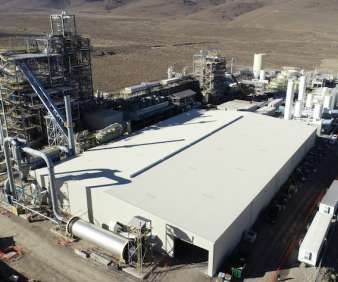SK invests in Fulcrum BioEnergy to accelerate production of low-carbon fuel from waste
Green Car Congress
DECEMBER 17, 2021
the strategic investment arm of South Korea’s SK Group, was part of a $50-million investment in Fulcrum BioEnergy, a US-based waste-to-fuels company. Fulcrum produce biofuel on a commercial scale by chemically converting municipal solid waste (MSW) into transportation fuels.












Let's personalize your content